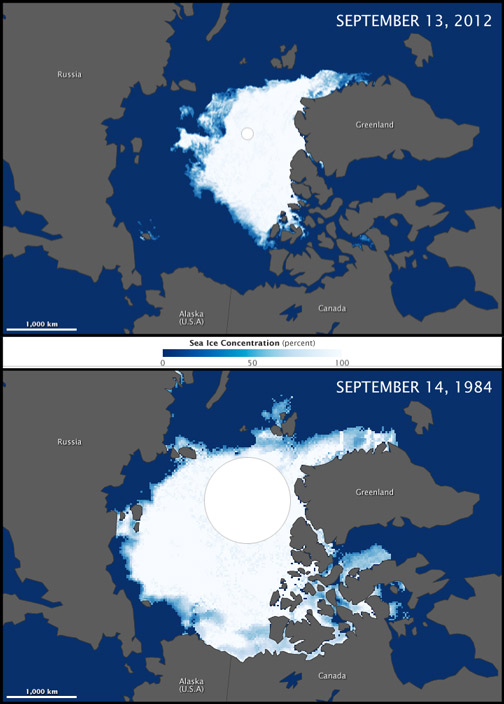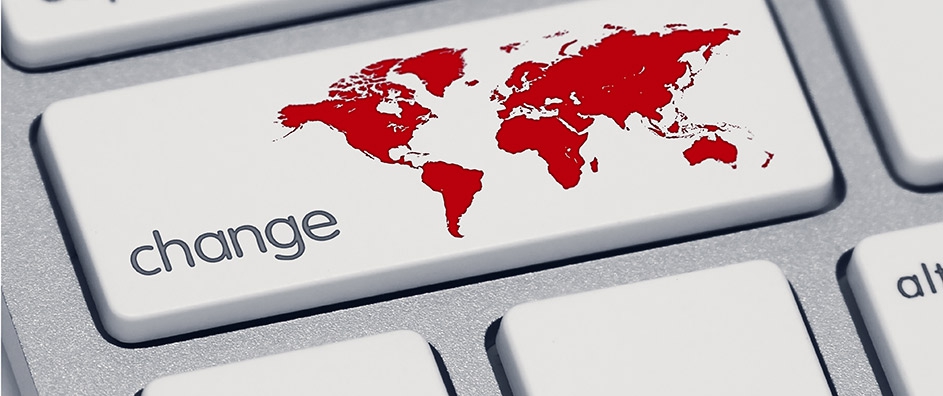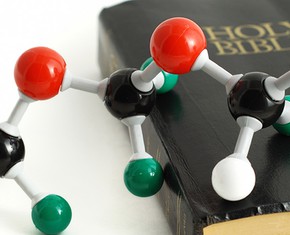The views expressed in our content reflect individual perspectives and do not represent the authoritative views of the Baha'i Faith.
In all matters moderation is desirable. If a thing is carried to excess, it will prove a source of evil…. The purging of such deeply-rooted and overwhelming corruptions cannot be effected unless the peoples of the world unite in pursuit of one common aim…
Strange and astonishing things exist in the earth but they are hidden from the minds and the understanding of men. These things are capable of changing the whole atmosphere of the earth and their contamination would prove lethal. …Each one of the ordinances We have revealed is a mighty stronghold for the preservation of the world of being. – Baha’u’llah, Tablets of Baha’u’llah, p. 68.
Our planet’s atmosphere knows no boundaries.
A hurricane that begins in the Gulf of Mexico never stops at the border checkpoint.
A melting ice sheet in Greenland raises all oceans.
A record heat wave in Europe affects everybody on the continent, regardless of nationality.
A logged rain forest in Brazil means less oxygen for all of us.
Those global impacts, according to the experts, will get much worse – and Baha’is believe that only a unified world can stop them.
Recently the Intergovernmental Panel on Climate Change (IPCC) issued a report called Climate Change 2014: Impacts, Adaptation and Vulnerability, which advises the world that the effects of climate change are already occurring on all continents and across the oceans. In the IPCC’s report, we learn that the world has not sufficiently prepared for the significant risks of a changing climate. The report also concludes that we do have opportunities to respond to such risks, though the risks will be difficult to manage with high levels of warming.
Many people haven’t heard of the IPCC – but today, they’re the most important group of scientists in the entire world.
The IPCC, established in 1988 by the United Nations Environment Programme (UNEP) and the World Meteorological Organization (WMO), provides the world with clear, scientific evidence on climate change and its environmental, social and economic impacts on humanity. The leading international body on climate change and its assessment, the IPCC investigates, gathers, compiles, evaluates and reports on purely scientific information – it is not a political or policy organization.
Thousands of scientists from all over the planet voluntarily contribute to the IPCC’s work. The IPCC rigorously reviews all scientific submissions, which ensures objective, balanced and complete assessments of current climate science. The IPCC’s reports, famous for their fair and exacting nature, typically include a range of views and expertise on climate – they do not attempt to reflect only one particular point of view or scientific conclusion.
Instead, the IPCC takes in information from all credible scientists who study climate, and assembles that information into trustworthy, rational and provable scientific conclusions.
As an intergovernmental body, the IPCC welcomes membership from all UN and WMO countries, and currently has 195 member nations – the vast majority of the world’s sovereign states. All member governments participate in the review process for IPCC reports, and the IPCC Bureau members are democratically elected during the plenary sessions.
 The new IPCC report details the impacts of climate change to date, lists and examines the future risks from a changing climate, and explores the opportunities for effective international action to reduce risks. With 309 coordinating lead authors and review editors, drawn from 70 countries, the new report tallies the scientific findings of 436 contributing authors, and a total of 1,729 expert and government reviewers.
The new IPCC report details the impacts of climate change to date, lists and examines the future risks from a changing climate, and explores the opportunities for effective international action to reduce risks. With 309 coordinating lead authors and review editors, drawn from 70 countries, the new report tallies the scientific findings of 436 contributing authors, and a total of 1,729 expert and government reviewers.
The IPCC report concludes, as have several previous reports, that humanity itself is causing climate change. The crisis does not belong solely to one nation, one region, one energy source or one technology. And yet, despite the enormous weight of the accumulated and verified scientific evidence, and the overwhelming agreement and assent from more than 95% of the world’s climate scientists, we still hear from a tiny but very vocal minority of climate “deniers” who insist the collective evidence is wrong. Those deniers, often generously funded or supported by the monied interests whose industries contribute most heavily to greenhouse gas formation, have convinced large segments of the public that climate change is a “hoax,” and that it should be ignored.
In this series of essays on the global challenge of climate change, we’ll look at the conclusions of the critically important new IPCC report; consider the implications of the scientific evidence for global policy; deal with the questions raised by the climate deniers; and look at potential solutions – both material and spiritual — that could spare the world’s population from the worst impacts of an environmental, economic and energy catastrophe.
















Comments
Sign in or create an account
Continue with Googleor